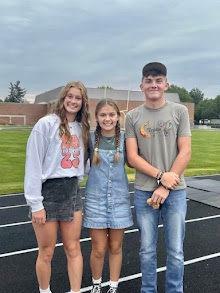The Massachusetts Minimum Size Requirements for Farm Animal Containment, also known as Question 3, was on the November 8, 2016, ballot in Massachusetts as an indirect initiated state statute. It was approved.
| A "yes" vote supported this proposal to prohibit the sale of eggs, veal, or pork of a farm animal confined in spaces that prevent the animal from lying down, standing up, extending its limbs, or turning around. |
| A "no" vote opposed this proposal. |
Millie: "There were always nine people to feed."
"We ate A LOT of eggs."
Diane: "I have experienced hunger and homelessness with my family.'
"I have pawned jewelry inherited from my grandmother to feed my children."
"I have dug through my sofa for enough change to buy a dozen eggs for dinner."
Millie: " We 'd walk by Grandma's after church after she'd baked bread. If she was home we'd stay and visit. If she wasn't, we ate all her food. We'd spread mustard on the homemade bread..."
"Mom baked bread every Saturday; she made loaves enough to last all week. She baked home made donuts with some of the dough. The older kids told us younger ones biting into a donut hole would kill us. And when we left a chewed around hole behind, the older kids came after and ate them all.....
Diane: "I was a mom and grandma struggling to pay my bills, working two jobs, unaware that so much money and effort was being earned and spent to bad mouth our food system, those who grow, and those of us who do not eat from their politically correct menus."
"I had no idea how indifferent the food police are to those who struggle and cannot afford to take our food for granted."
"Ninety percent of egg customers vote for conventional eggs when we shop, yet big retail ag let themselves be bullied by vegans who, ironically, are not even their egg and meat customers."
Diane: "The perception that farm groups are going after federal nutrition spending for the poor divides the urban and rural coalition, playing right into the hands and policies of the food police."
Dianne Sullivan is standing in front of 1200 Missouri farmers, a moral force behind the podium, her sentences short, her message stinging like BBs.
"We must be more united and assertive in protecting and distributing our abundance."
"We must have the voices of victims in this debate join with those who produce."
"The voice of low and middle income consumers can no longer be excluded from the negotiating tables."
"It is imperative that we restore the farm bill coalition, uniting urban and rural partnerships, to promote food security and protect our dinner plates from the self-appointed food police."
Dianne is speaking to us food producers about food consumers....not the consumers that propelled Massachusetts Question 3 to victory in November, not the ones purportedly eating their sausage and eggs without guilt, knowing the hog wallowed and the chicken scratched before becoming over easy in a quaint New England diner. No, the consumers Diane is speaking for are people like my mother-in-law and most farm families in the not so distant past: hard working, hard scrabble, hand to mouth folks. People on a budget, people who cut coupons, people whose grocery carts have gallons of milk, peanut butter, eggs, and whatever is on sale that week. The "food elite" and "food police" Diane dismisses might consider a pantry full of such basics barren in taste or choice, but it offers what is most necessary: bounty and energy at a reasonable price. Her emphasis on the cost of food is a necessary and potent reminder to those of us who grow it: our allies in the debate about the indispensability of scientific and modern inputs and methods in agriculture cannot afford the luxury of free range, GMO free, or other even less measurable and efficacious adjectives to describe their dinner. They are even more powerless against the bankroll and celebrity cache' of organizations like HSUS and the Sierra Club. ( More endorsements of Question 3)
Diane: "As you know, corporate agriculture and big retail has the ability to pinch producers on one end and pass costs on to consumers on the other end, making it all too easy for some of them to lie down, roll over, and play dead, whenever HSUS marches in with their list of demands. "
"As I shared before every Massachusetts audience I encountered, question 3 is a regressive food tax, hitting poor people the hardest and according to Cornell, will cost consumers nearly $250 million in higher food costs the first year alone."
"This is the definition of social injustice: those elite with money and satisfied choices imposing burdens on those with neither."
Those of us who are the second and third ....or the fourth...or fifth generations of family farmers...have heard tell how our parents, grandparents, and ancestors worked and sacrificed to make a living and feed their families. Their stories are our heritage...and our conscience in the food fights of this era of prosperity. The mindset that ignores the well being of our neighbor in pursuit of some endgame in which animals are landscape, not menu, is not merely selfish, but immoral. Food is for people and farmers' mission is to provide it the best way they know how. To that end:
Diane: "American agriculture does provide the safest abundance in the world."
"It does so more sustainably than anywhere else in the world."
"American agriculture is the envy of the world".
"American agriculture will decide whether growing world food demand is met or, tragically, whether we fail."
"How much courage should it take to stand up for that?"
"This is a call to action. And remember, in the end, you will be judged by your actions, not your intentions. You may have a heart of gold, but so does a hard-boiled egg."





















No comments:
Post a Comment